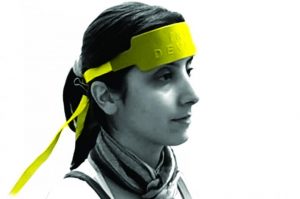Aug
12
2016
 Virtual reality (VR) and augmented reality (AR) applications are already here, but they still have not hit the steep part of the curve. We appear to be right at the beginning. We are about to experience the rapid adoption and experimentation with this new technology, and it will be interesting to see what applications become popular, and how people end up using these technologies. This is like predicting prior to the iPhone what smart phone apps will be popular.
Virtual reality (VR) and augmented reality (AR) applications are already here, but they still have not hit the steep part of the curve. We appear to be right at the beginning. We are about to experience the rapid adoption and experimentation with this new technology, and it will be interesting to see what applications become popular, and how people end up using these technologies. This is like predicting prior to the iPhone what smart phone apps will be popular.
For background, VR involves wearing goggles that fill your entire field of vision, so that you appear to occupy an entirely virtual world. When you physically move your head, your virtual perspective changes accordingly, so you can actually look around your virtual world. Wearable devices like gloves are used to manipulate the virtual world.
Augmented reality is similar, but instead of immersive goggles you wear transparent glasses (like Google Glass) or use a handheld device with a camera (like Pokemon Go) which overlays virtual information onto the real world.
Continue Reading »
Aug
11
2016
 With the Olympics brings a great deal of attention to sports and sporting culture, including the latest fads that are sweeping athletes. It is well known that athletes, for example, are very superstitious, and it’s fun to talk about their crazy personal rituals.
With the Olympics brings a great deal of attention to sports and sporting culture, including the latest fads that are sweeping athletes. It is well known that athletes, for example, are very superstitious, and it’s fun to talk about their crazy personal rituals.
A 2016 review of the literature confirms the association between sports and superstitions. They find that there are cultural and situational factors at play. The situational factors include:
In agreement with past theories, they increase with the level of challenge, as reflected by the importance of the competition, as well as with the level of uncertainty.
People engage in superstitious behavior to have a sense of control, and they need that sense of control when the stakes are high and uncertainty is high. This explains the observation that more elite athletes engage in more superstitious behavior.
Continue Reading »
Aug
09
2016
 If I told you I could make something nonexistent disappear, you probably would not be very impressed with that as a magic trick. However, magic is all about misdirection. If I could make you think you saw an object that was never there, and then make it disappear, that could be quite impressive.
If I told you I could make something nonexistent disappear, you probably would not be very impressed with that as a magic trick. However, magic is all about misdirection. If I could make you think you saw an object that was never there, and then make it disappear, that could be quite impressive.
Psychology and Magic
Increasingly psychologists, neuroscientists, and magicians are converging upon a model of how our brains construct our perceptions of reality. Magicians actually had a head start as they have been working out practical ways to fool human perception for centuries. Psychologists started taking note in the late 19th century, but really have only been seriously examining the techniques of magicians in the last decade or so. Psychologists now routinely use magic tricks as part of experimental setups.
The basic picture that has emerged is that our sensory perceptions have both bottom-up and top-down components. The bottom-up components are essentially using the raw sensory input and constructing an image from that, then passing that construction on to higher brain levels that interpret the image and give it emotional meaning. Top-down construction works the opposite way, with the higher brain areas communicating their expectations to the primary sensory areas and influencing their construction.
Continue Reading »
Aug
05
2016
 It is my universal experience, after more than thirty years of confronting various forms of evolution denial or creationism, that creationists simply do not understand evolution. If any do understand it, they pretend not to. I guess they have no choice – they are motivated to deny an established scientific theory. They need to pretend they know better than the world’s experts, or that the world’s experts are lying and deceitful.
It is my universal experience, after more than thirty years of confronting various forms of evolution denial or creationism, that creationists simply do not understand evolution. If any do understand it, they pretend not to. I guess they have no choice – they are motivated to deny an established scientific theory. They need to pretend they know better than the world’s experts, or that the world’s experts are lying and deceitful.
Mike Pence is a run-of-the-mill creationist. His denial of evolution is unremarkable and unimaginative, but now he is running for Vice President so his views serve as a ripe target for criticism. In a speech before the House he decided, for some reason, to go on a rant against evolution. For those who are interested, it is a good opportunity to play “name that logical fallacy” and you may want to watch the video and count the errors before reading ahead.
Pretty much everything Mike Pence says in the speech is wrong or misleading, except for trivial facts. He starts by setting the stage with Darwin publishing On the Origin of Species and presenting the theory of evolution. That evolution is just a “theory” is a main theme of his speech, which I will get to in a moment, but first he follows up by saying that Darwin expected his theory to be proven correct by the fossil record. He concludes that Darwin did not live to see this happen, and neither have we.
Is Evolutionary Theory Proven? Continue Reading »
Aug
04
2016
 Facebook, despite its critics and many competitors, remains a robust social media platform. The SGU has a Facebook page with over 1 million likes, and we use it to drive traffic here and to Science-Based Medicine.
Facebook, despite its critics and many competitors, remains a robust social media platform. The SGU has a Facebook page with over 1 million likes, and we use it to drive traffic here and to Science-Based Medicine.
There are pages on Facebook promoting just about any point of view you can imagine. It is a true marketplace of ideas. Like any marketplace, there is the expectation that its rules are fair and its regulation is rational and reasonable.
Earlier this year Facebook came under criticism when it was discovered that some of their employees may have been systematically biased against conservative leaning news items. This sparked a discussion of whether or not an outlet like Facebook has a responsibility to be neutral. They are a private company, they can do what they want. Newspapers and TV news programs can have a biased editorial policy. What is important is transparency, and Facebook was putting their thumb on the scale on the sly. They have responded by initiating a training program for their employees to teach them to recognize their own bias – so they at least understand the benefit of the perception of being unbiased.
Continue Reading »
Aug
02
2016
 I dislike double standards. They are inherently intellectually dishonest. Sometimes double standards are the result of a deliberate campaign to confuse the public or regulators in order to create special privileges.
I dislike double standards. They are inherently intellectually dishonest. Sometimes double standards are the result of a deliberate campaign to confuse the public or regulators in order to create special privileges.
Alternative medicine is a great example of a double standard. Proponents want their own special standard for research, for evidence, and for practice. They, in fact, have succeeded in passing laws in many states which explicitly create a double standard for practices arbitrarily deemed “alternative”.
Organic farmers can use toxic pesticides while criticizing their competitors for using less toxic pesticides. They also eschew GMO cultivars, while using those resulting from mutation farming or forced hybridization.
One clear double standard is the marketing of supplements – the industry has successfully created a double standard for their products. They criticize the pharmaceutical industry while being guilty of far worse practices. Continue Reading »
Aug
01
2016
 Everyone knows that it is better for your health to exercise regularly, and that a sedentary lifestyle is ultimately unhealthy. The science clearly supports this conclusion as well, so this is one area where popular belief and science are in accord.
Everyone knows that it is better for your health to exercise regularly, and that a sedentary lifestyle is ultimately unhealthy. The science clearly supports this conclusion as well, so this is one area where popular belief and science are in accord.
Uncertainty sets in, however, when you try to drill down to more detail. The primary question is – can exercise undo or offset the negative effects of being sedentary? Is the problem with sitting only that you are not exercising, or is sitting a risk factor for death in and of itself?
A new review and reanalysis of data from 13 studies hopefully clarifies this question. There is some good and bad news in the results, but overall I think it is good.
The authors looked at the two variables of interest, exercise and sedentary time. Sedentary time includes driving, sitting at a desk, watching TV, and similar activity. Moderate exercise could be just taking a brisk walk, and they mostly considered the total time of exercise.
Continue Reading »
 Virtual reality (VR) and augmented reality (AR) applications are already here, but they still have not hit the steep part of the curve. We appear to be right at the beginning. We are about to experience the rapid adoption and experimentation with this new technology, and it will be interesting to see what applications become popular, and how people end up using these technologies. This is like predicting prior to the iPhone what smart phone apps will be popular.
Virtual reality (VR) and augmented reality (AR) applications are already here, but they still have not hit the steep part of the curve. We appear to be right at the beginning. We are about to experience the rapid adoption and experimentation with this new technology, and it will be interesting to see what applications become popular, and how people end up using these technologies. This is like predicting prior to the iPhone what smart phone apps will be popular.
 With the Olympics brings a great deal of attention to sports and sporting culture, including the latest fads that are sweeping athletes. It is well known that athletes, for example, are very superstitious, and it’s fun to talk about their crazy personal rituals.
With the Olympics brings a great deal of attention to sports and sporting culture, including the latest fads that are sweeping athletes. It is well known that athletes, for example, are very superstitious, and it’s fun to talk about their crazy personal rituals. If I told you I could make something nonexistent disappear, you probably would not be very impressed with that as a magic trick. However, magic is all about misdirection. If I could make you think you saw an object that was never there, and then make it disappear, that could be quite impressive.
If I told you I could make something nonexistent disappear, you probably would not be very impressed with that as a magic trick. However, magic is all about misdirection. If I could make you think you saw an object that was never there, and then make it disappear, that could be quite impressive. It is my universal experience, after more than thirty years of confronting various forms of evolution denial or creationism, that creationists simply do not understand evolution. If any do understand it, they pretend not to. I guess they have no choice – they are motivated to deny an established scientific theory. They need to pretend they know better than the world’s experts, or that the world’s experts are lying and deceitful.
It is my universal experience, after more than thirty years of confronting various forms of evolution denial or creationism, that creationists simply do not understand evolution. If any do understand it, they pretend not to. I guess they have no choice – they are motivated to deny an established scientific theory. They need to pretend they know better than the world’s experts, or that the world’s experts are lying and deceitful. Facebook, despite its critics and many competitors, remains a robust social media platform.
Facebook, despite its critics and many competitors, remains a robust social media platform.  I dislike double standards. They are inherently intellectually dishonest. Sometimes double standards are the result of a deliberate campaign to confuse the public or regulators in order to create special privileges.
I dislike double standards. They are inherently intellectually dishonest. Sometimes double standards are the result of a deliberate campaign to confuse the public or regulators in order to create special privileges. Everyone knows that it is better for your health to exercise regularly, and that a sedentary lifestyle is ultimately unhealthy. The science clearly supports this conclusion as well, so this is one area where popular belief and science are in accord.
Everyone knows that it is better for your health to exercise regularly, and that a sedentary lifestyle is ultimately unhealthy. The science clearly supports this conclusion as well, so this is one area where popular belief and science are in accord.




